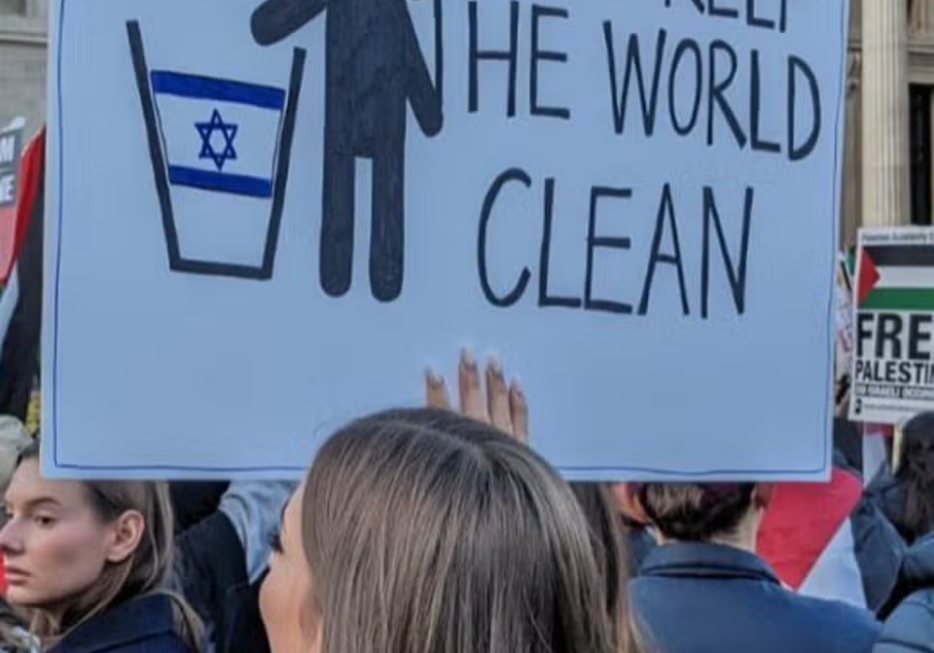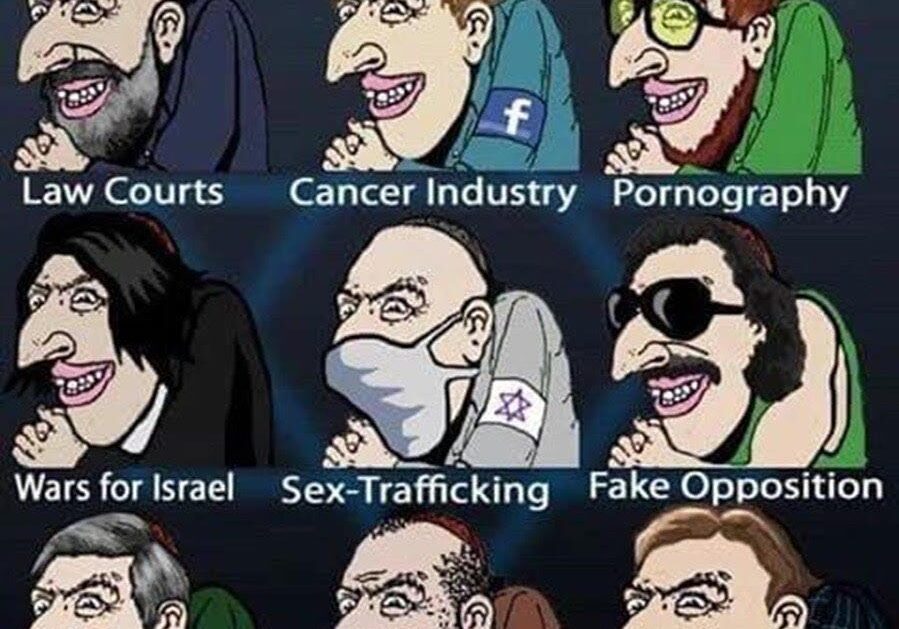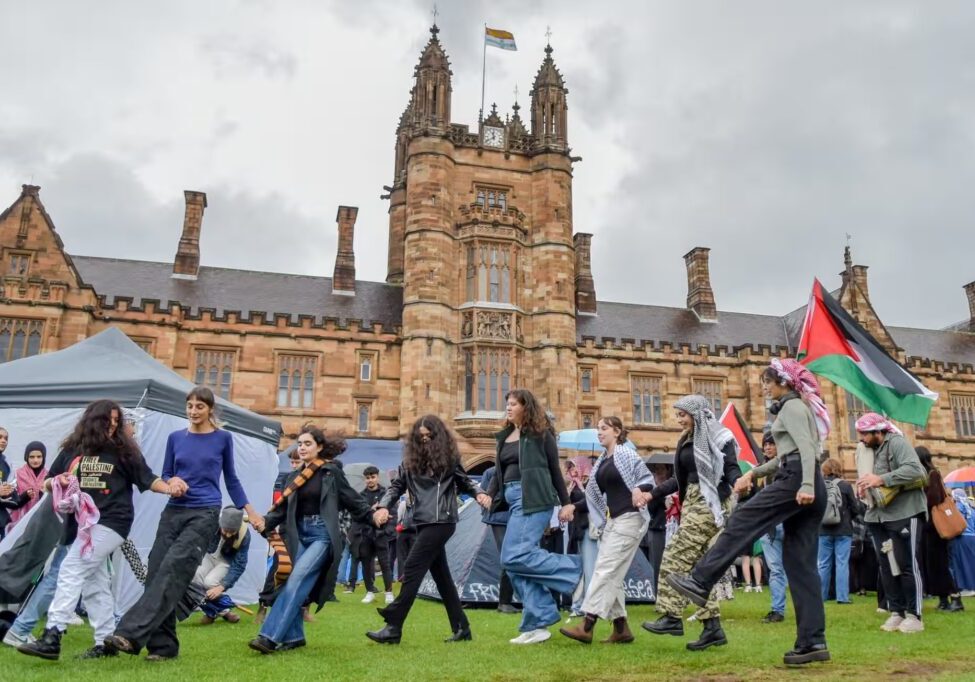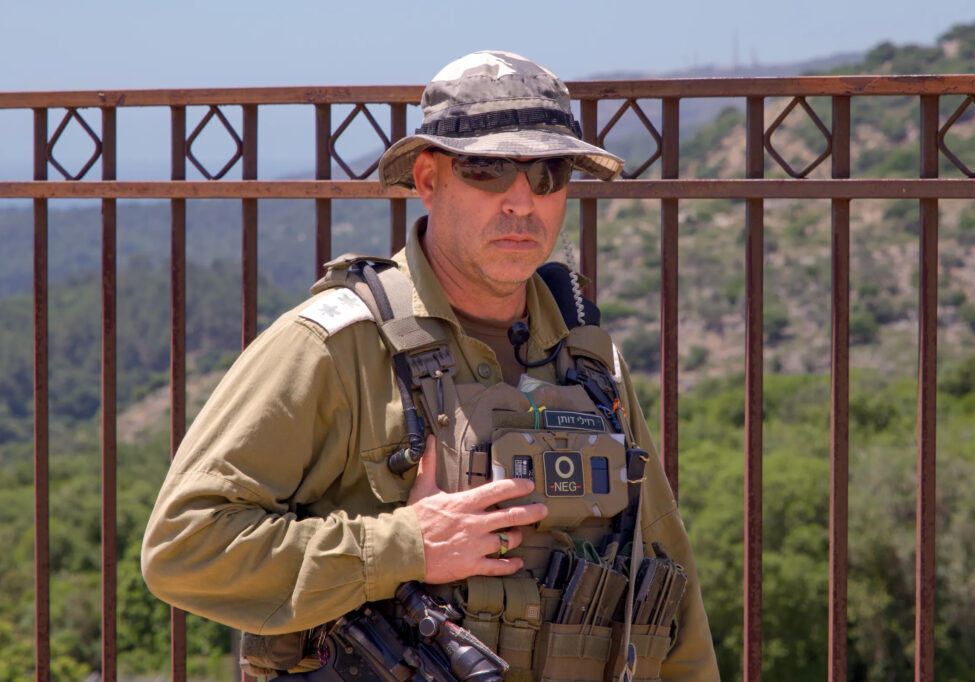Australia/Israel Review
The Dissident and the President
Jan 3, 2005 | Yehonathan Tommer
An exclusive interview with Natan Sharansky
By Yehonathan Tommer
 |
| Natan Sharansky: Advocating the power of ‘Weapons of Mass Construction’ |
During his nine-and-a-half years in the Soviet gulag, much of it in solitary confinement, Anatoly Sharansky withstood physical and psychological torture by maintaining a fierce belief in freedom and justice. Today, 18 years after his release from jail, Israeli Minister for Diaspora Affairs Natan [Anatoly] Sharansky maintains his belief that freedom can overcome tyranny, and that ordinary people everywhere thirst for liberty and democracy. In November, he met US President Bush to discuss his new book, The Case for Democracy. He spoke to The Review in Jerusalem on Dec. 8.
Q: You met with President George W. Bush and talked about your recent book The Case for Democracy which he was reading last month. According to some American reports (New York Sun, Dec. 1), the US Administration has adopted your vision of Palestinian democratisation before negotiation as policy. What did you say to him that was so persuasive?
Sharansky: I’d like to take all the credit but I can’t. Even during his first four years, President Bush spoke very firmly about the fact that reliable peace can be brought on by democratic leadership. I was among the first who identified this new line and I agreed with him because that is exactly the line I have taken since I was released from (Soviet) prison (in 1986). I wrote many articles and made many speeches about the fact that the West abandoned the line which brought success in the struggle for victory in the Cold War, and that it is trying to rebuild world stability by supporting by loyal dictators. That was my concept for many years and I was very glad to see that President Bush spoke in accordance with this line two years ago and that it has become stronger and stronger since then.
I think that President Bush found in my book a theoretical background – not just a slogan or instinct — which says that it is good to deal with democracies. I have said for years that it is much more important for us to deal with a democracy which hates you than with a dictator who loves you.
I show in this book that there is a very clear and persuasive theory which allows one to understand the mechanics of democracy and tyranny. When you start analysing, you can understand why democracy is good for everybody, and that there are no people who prefer to live in slavery and under dictatorship. Also I show how this connection exists by analysing the mechanics of working relations between world leaders and their own people. Probably that’s exactly what was so important for President Bush to find a theoretical base for his own beliefs.
Q: You reportedly said President Bush was a “dissident” President. Can you explain what you meant?
Sharansky: President Bush is a leader who believes in these concepts and will go ahead with them even though there are very few leaders who share these views. What is the difference between a politician and a dissident? A politician looks at what the polls show, what other leaders think and what is good for his career. A dissident believes in an idea and goes with it wherever it will take him – to prison or to better places. I said to him (Bush) before the presidential elections that democracy in Iraq is not something popular in which most Americans believe. But he went ahead anyway and it’s clear today that democracy in the Middle East is not popular among European (or other) world leaders. I told him that as the world leader, to me you are the dissident. Sometimes it is tough when everybody is against you but I know from my own experience that history is with the dissidents.
Q: Since your release from jail you have been unstinting in your praise for the late American president Ronald Reagan for his clear-minded vision of Soviet evil. Do you believe Bush is a similar visionary, a world leader who can lead the Middle East away from tyranny today?
Sharansky: For sure. I wrote this in my book and said how important it was that Reagan did not listen to his realpolitik people and for his important contribution to the victory in the Cold War. My enthusiasm for Bush is in his return to the line taken by President Reagan.
Q: In The Case for Democracy you say that freedom can overcome tyranny, and this is what gave you the strength to survive the Gulag and defeat the KGB. You also write that all people naturally desire freedom, and that even in the darkest days of Soviet oppression, Soviet Jews put themselves at risk by demonstrating for aliyah. But there are few if any signs today that the “Arab street” is stirring in favour of democracy and individual liberty today. True grass-roots movements have been rare (Syria in the 1980s and Iran in the 1990s are exceptions, rather than the rule), and have been brutally suppressed. How does your lesson apply to today’s Middle East?
Sharansky: Almost my entire book is devoted to why these movements appear in one place and not in other places. In the Soviet case we had to have people in the Soviet Union who were ready to speak out, for public opinion around the world ready to support them and for a free world which was ready as a matter (of principle) to link its policies to human rights. There were no dissidents in Stalin’s day. They were simply killed and the West accepted it saying, “what can we do?” A Gandhi could not appear in Nazi Germany or in the Arab world since he would be imprisoned before he had two or three followers. It is a function of how tough the regime is and how the world is ready to accept it.
There are several dozen dissidents in the Arab world and I mention them in my book. But is the world ready to support them? As a rule, they say, this weakens the regimes of our (Arab) allies in Saudi Arabia and in the Palestinian Authority (before Yasser Arafat’s death) and they are not getting any assistance and support.
Only in the last few days I told American Congressmen the names of several important dissidents who had been arrested in Libya and Syria. They didn’t even know about it. This was in great contrast to what happened in the Soviet Union. In fact they agreed that they have to start dealing with (Arab regimes) in the same way.
When the West decides that its own stability relies on “our” dictators, this strikes a major blow to potential dissidents and reduces their chances of raising their voice (in protest).
Totalitarian regimes have three groups of people: true believers, dissidents and double thinkers. Iran is a good example of how in one generation a country with practically all true believers turned into a country of double thinkers… History has shown that the moment the free world stops giving support to these regimes and encourages dissidents, these regimes can very quickly fall apart.
Q: Some scholars argue that democracy requires decades or even centuries of cultural and other organisational developments and that it is unreasonable to base policy decisions on hopes of democratisation. There can also be an unravelling of democracy, as in Russia, demonstrating that without traditions to support it, true democracy cannot grow. How do you respond to this argument?
Sharansky: No doubt a fully developed democracy must have a history. Did France after the French Revolution have a fully developed democracy? Twelve years later Napoleon rose to power. But did this mean that the French people are not capable of having a democracy? Seventy years after the great American revolution there was still slavery. Does this mean that the American people are simply incapable of having a full democracy? I differentiate in my book between a “free” society and a society of “fear.” Free societies live by the “town square” test (taken directly from the Soviet prison experience): namely, if you can go the centre of your town and express your views whether monarchist, nationalist or Muslim activist and you’re not put in prison. This affects relations between leaders and their people. Their societies can have very undeveloped democracies. But the moment people are not afraid, they will choose freely, they’ll choose to live in a free society.
In 1945 President Truman’s closest advisers tried to convince him that Japan definitely would not be a democracy in his generation. In 1948, this was not a question. Japan was not a developed democracy but it was a free society. The same was true of Germany, and of Russia today. Western leaders tried to convince us that the totalitarian regime was there (to stay) for ever — that must find a way of living with them. Dissidents like Sakharov said stop supporting the regime and you‘ll see how quickly it will fall apart.
Q: You have also written that Gorbachev’s downfall came when he tried to give the Russian people a “taste” of freedom and that he failed to understand that once the floodgates are opened, it can’t be turned back. What is your response?
Sharansky: Since Gorbachev Russians chose to live in freedom. There are still many restrictions, such as Putin’s efforts to control the press. There are still ups and downs. Russia is no longer the feared empire. More than 10 years after the fall of the Soviet Union, Russia is a different type of society. There is no KGB, no millions of people imprisoned in the Gulag and millions having to live with self-censorship.
Q: The Palestinians seem to defy your theory. Under Israeli administration they enjoyed greater freedoms of press, speech and association than any other Arab citizens, certainly more than they have under the Palestinian Authority. Yet in 1987 they rebelled against Israeli rule, choosing Arafat. How do you see the post-Arafat democratisation of Palestinian society? Do see any truly pro-democratic forces there?
Sharansky: They (the Palestinians) have classes who have suffered from Arafat’s corrupt dictatorship. The point is whether we (Israel) will be ready to give them support. These (Presidential) elections (January 9) are not a triumph of democracy, but a technical matter between different power groups to choose who is stronger. The real struggle for democracy begins the day after. And if we stop asking ourselves who is better for us – because it’s not really our business who’ll be elected. Though we’ll make very clear demands of the (new) leadership about policies the day after.
If this leadership will start reforms — the most important in my view being the dismantling of four generations of deliberately held refugee camps, to immediately stop incitement and educating to hatred and launch normal educational programs, to start dealing with the problems of job creation for their people and to fight terror and terrorist groups who will definitely be against these reforms. If they are ready to do these, we have to support and embrace this leadership and to launch a new Marshall plan (for Palestinian reconstruction). But if they’re not ready, they should get no legitimacy and no support from the world. And if that will be our policy, I think we will have a good chance.
Q: Would Palestinian reforms parallel movement on the diplomatic track, or do you see them as preconditions for progress toward a settlement of the conflict?
Sharansky: We would naturally negotiate with everybody who does not support terror. But when we speak of concessions, I would say that when I created Israel B’Aliyah, the immigrant political party (in 1996), I wrote that the depth of (diplomatic) negotiations should be proportionate to the depth of (Palestinian) democracy. So it has to be in parallel. It was mocked and ridiculed on the left and on the right to this day. It is difficult for many people in Israel and in the world to accept that there is a linkage. I am very glad that we now have a President of the United States of America who believes there is a linkage and that’s why I believe there must be a very clear linkage between our (Israeli) concessions and progress in democratising Palestinian society.
Q: So you are still firmly opposed to Prime Minister Sharon’s Gaza disengagement plan?
Sharansky: I don’t believe in one-sided actions in the middle of the war against terror. I have not changed my opposition to the plan.
Q: Will Natan Sharansky be a Likud member of parliament in the next Knesset elections in 2006?
Sharansky: Well, if I want to and I put my effort into it, I will be re-elected.
![]()
Natan Sharansky’s latest book, The Case For Democracy: The Power of Freedom to Overcome Tyranny and Terror, co-authored with Ron Dermer, is published by Public Affairs books. Yehonathan Tommer is a freelance writer based in Jerusalem.
Tags: Iraq






